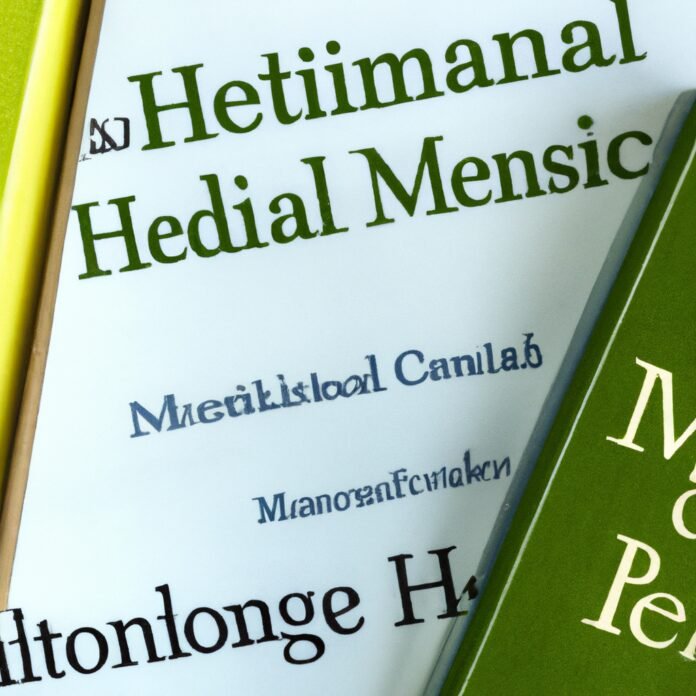Mental health issues are complex and can often be difficult to treat, but holistic approaches to treating mental health disorders offer alternative and complementary approaches to traditional methods. By looking at mental health from an integrated perspective, these holistic approaches can help people identify and overcome the factors in their lives that have contributed to their disorder. From diet modification to alternative therapies, learn how holistic approaches can help you find balance and heal.
1. Unleashing the Power Within: Exploring the Holistic Paradigm for Mental Health Disorders
As the exploration of mental health awakens a broad awareness among individuals, so has the conceptualization of its healing process. What many cannot recognize is that there lies far greater potential within that can be used to achieve sustained wholeness. Introducing the holistic paradigm — a framework of healing that is rooted in understanding the mind, body, and spirit connection.
This remarkable approach allows individuals to create intrinsic changes on the path to upsurgence. Central to holistic mental health is the focus on an individual’s total wellbeing and the acceptance that physical, mental, emotional, and spiritual facets of life are connected.
Within this, two paths to recovery can be found:
- Physical: The foundation of this process lies in physical health, and understanding the correlation between adequate rest, proper nutrition, and physical movement. Upon implementing these habits, the body has the capability of naturally normalizing many of the imbalances associated with mental health.
- Emotional: Green spaces, artwork, animal therapy, music and other creative forms of expression are all contagious forms of emotional healing. Each offers the chance to provide insight into one’s hidden thought processes or circumstances and opens the door to the inner person.
The unique beauty within the holistic paradigm is the recognition of the human spirit — the intimate belief that the possibilities for personal growth are limitless. The concept of forming meaningful relationships is also of utmost importance, as these can provide necessary emotional outlets and deepen insight to the mind’s agility.
When the holistic paradigm is embraced, it can lead to extraordinary results that can be both liberating and life changing. When these methods are pursued, individuals can unlock the opportunity for total healing.
2. Embracing Mind, Body, and Spirit: A Holistic Journey towards Mental Well-being
Every journey towards mental wellness is a unique one. Starting on this journey requires embracing an understanding of how mind, body, and spirit are intertwined; each playing a role in our overall mental well-being. Here are a few tips to help get you started:
- Acknowledge your feelings. Emotions can run high during especially challenging times, and it’s important to recognize how you feel without judgment or criticism.
- Focus on self-care. Prioritizing self-care such as meditation, journalling, or a healthy diet can be beneficial towards feeling mentally grounded.
- Connect with others. Connecting with people who understand your situation, especially those willing to provide words of comfort and support, can help you feel less isolated.
- Practice self-awareness. Examine your strengths and weaknesses, and prioritize activities that help foster your personal growth.
The power of connecting mind, body, and spirit is beyond measure. Having an awareness of their potential to influence our mental well-being can be a powerful tool in helping us move forward with intention and self-compassion.
The journey to mental wellness is an individual one, and going at your own pace is key. Establishing coping mechanisms and techniques that work for you and committing to regular self-care can make a world of difference. Each person’s journey is different, and everyone will eventually find their own balance.
Opening your heart and mind to this holistic journey towards mental well-being can be liberating and life-changing. Even the smallest steps forward can make a big difference. Celebrate every step you take, no matter the size, and feel proud for taking charge of your mental health.
The possibilities are endless! With commitment, patience, and understanding you can successfully gain control of your mental well-being and rediscover the joys of life.
3. Bridging the Gap: Integrating Traditional and Alternative Holistic Therapies for Mental Health Disorders
It has been said that alternative therapies provide an excellent way to effectively tackle mental health disorders. Yet, many are unaware of the different methods of doing this, mixing traditional therapies with more holistic approaches. In this article, we will explore the ways in which these two approaches can work together to provide an effective treatment plan for anyone suffering from a mental health disorder.
Unusual treatments: Many of the alternative treatments for mental health disorders are not typically part of a traditional therapy approach. Some of these treatments include yoga, mindfulness, massage therapy, and acupuncture. These treatments work to promote relaxation and mindfulness, as well as providing a natural means of reducing stress and improving overall mental wellbeing.
Drug-free stress relief: Alternative therapies can be used in conjunction with traditional medication for mental health disorders. For instance, acupuncture has been shown to reduce stress levels, while yoga and massage therapy have been proven to reduce anxiety and depression. These treatments all work to provide a drug-free way to combat mental health issues, while still being effective.
Finding the right balance: When considering integrating alternative therapies with traditional treatments, it is important to find the correct balance. It is also important to discuss any alternative treatments with your doctor, to ensure they are appropriate and beneficial for your particular situation. The aim should always be to find the most effective and individualized approach to treating mental health disorders.
Benefits of integration: By combining traditional psychological interventions with alternative treatments, it is possible to provide a comprehensive and well-rounded approach to tackling mental health disorders. This approach works to improve overall mental health and wellbeing, while minimising symptoms of mental illness and reducing the impact on everyday life.
- Alternative treatments provide drug-free relief and relaxation
- It is important to find the correct balance between traditional and holistic treatments
- Integration of traditional and alternative therapies can provide a comprehensive approach to mental health disorders
- This approach has been shown to improve overall mental health and reduce symptoms of mental illness
4. Illuminating the Path: Harnessing the Holistic Approach to Transform Mental Health Care
Mental health care is a complex web of physical, emotional, and environmental stressors. Those who seek help for mental health often find themselves struggling through a tangled labyrinth of different individual and collective efforts. It can be overwhelming to try to navigate this terrain alone. However, harnessing the holistic approach – a comprehensive, integrative, and interdisciplinary approach to mental health care – may help to illuminate the path towards recovery.
Through this approach, the individual is viewed as a whole person, rather than as simply a set of symptoms to be solved. Practitioners work to understand how biological, psychological, social, and spiritual needs are intertwined. This allows for nuanced interventions that can reach the root of problems and foster long-term healing.
For example, a holistic approach may include:
- Traditional therapy such as cognitive behavior therapy, family therapy, and psychoeducation.
- Body-based therapies such as yoga, breathwork, and mindfulness meditation.
- Natural medicines such as herbal supplements or homeopathic remedies.
- Spiritual practices such as exploring spiritual needs and developing rituals for connection and healing.
This multi-faceted approach can help individuals to better understand the underlying cause of their distress. It’s also effective in helping them to build a toolkit of skills to help manage stress, anxiety, and other mental health issues. The talents of experienced practitioners are essential in helping the patient to effectively navigate this journey.
By harnessing the holistic approach, mental health care providers can gain a deeper understanding of the patient’s inner world. They can then use this knowledge to guide individuals on their journey towards wellness, unlocking their potential to find healing and hope on the other side.
By exploring holistic strategies to treat mental health disorders, we can look to a future filled with new possibilities for mental health healing. Although there is still much progress to be made, advances in holistic treatments can pave the way for true wellness and a blossoming of mental resiliency.



